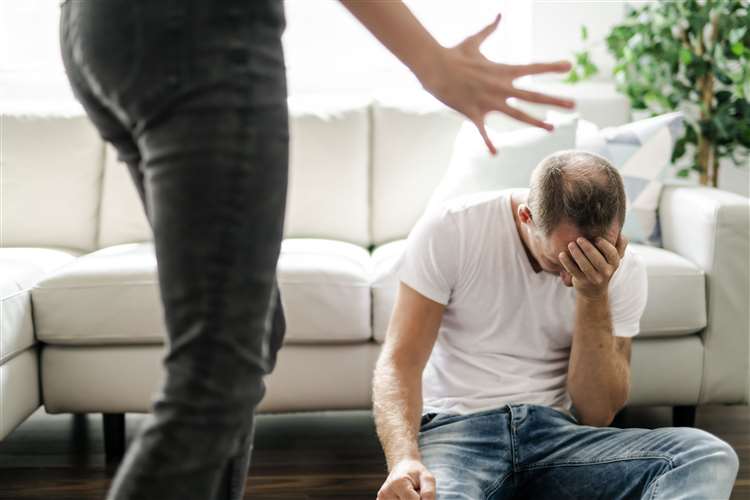Many male victims of domestic violence don’t seek help because they are embarrassed to admit their vulnerability. They may even be afraid people won’t believe them. Tami Weissenberg was one of these men. He thought he could save his girlfriend by telling her he was afraid he wouldn’t be believed. But he soon discovered that his actions had the opposite effect. In a matter of weeks, he found himself in a psychiatric hospital.
Statistics of Domestic Violence Against Men
In a recent study, the National Coalition Against Domestic Violence reported that one out of nine men has been the victim of a violent act in their lifetime. Despite this high number, there are many reasons why men don’t report such violence to their partners. The gender role of a man and the embarrassment of revealing such behavior make men more likely to keep silent. But this has to change.
According to a study commissioned by the ManKind Initiative, male victims of domestic abuse made up 25% of all cases. This represents an increase of almost four percentage points from previous years. The study also revealed that men experienced fewer refuges than women. While women have more rights to seek help and be seen as victims, men often suffer unjustly because of this discrimination. The statistics, which can be shocking, are still inadequate to help victims.
Famous Male Domestic Abuse Cases
Most victims of domestic violence are women, but men can be victims of such abuse as well. Many of these men are too ashamed to seek help, as they feel no one will believe them. However, there are some famous male abuse cases that illustrate how men can be victims. Here are a few of them. They may be surprising to you. They are victims of violence as well, and they may be just as deserving of your support as women.
Dr. Quadrio, a Victorian psychiatrist, testified in the trial of a man accused of murdering his violent partner. The jury, however, accepted the man’s claim that he had acted in self-defense when he hit his violent partner. Although he had been acquitted of murder, the man’s behavior had the hallmarks of the most severe form of family violence. This is called “intimate terrorism” in some cases.
Effects of Domestic Violence on Male Victims
The lack of research into the effects of domestic violence on male victims of sexual assault, abuse, and physical abuse has several implications for health professionals. These findings may lead to a difference in response from health professionals towards male victims of abuse. In addition, there is an increased risk of male victims of domestic violence being stigmatized, which may further perpetuate the cycle of abuse. However, with the help of new research, health professionals can better understand the causes and effects of domestic violence on male victims.
The causes of male victimization are similar to those of female victims. A new study conducted by the National Institute of Justice found that 8 percent of men experienced physical or sexual assault in their current relationships. Men also reported experiencing stalking. Male victims of domestic violence were just as likely to suffer from post-traumatic stress disorder (PTSD) as women. This is important because these statistics may be outdated. However, with proper education and services, male victims of domestic violence can begin to rebuild their lives.
Common Responses of Male Victims in Domestic Abuse
Research has identified common barriers faced by male victims of domestic violence. Male victims are often hesitant to seek help due to a lack of understanding of abuse and the language used to label it. Other barriers include embarrassment, loss of masculinity, and fear of judgment or the police response. In this article, the author identifies common barriers male victims face and offers suggestions to improve help-seeking by male victims.
Male victims of domestic violence often fear the public’s disbelief and ridicule for reporting the abuse. This fear prevents them from talking to friends or calling the police. Moreover, they fear that their abuser will file for a protection order and gain custody of their children. As a result, male victims fear the loss of contact with their children. Further, male victims may also be afraid of being arrested for contacting police or revealing their abuse.
How Can We Help Male Victims of Domestic Abuse?
In a world where women are considered the norm, it may seem odd that male victims of domestic abuse are underrepresented in our society. However, men are just as likely to suffer from abusive relationships. The stigma of being “strong” makes them reluctant to seek help, and they may be afraid of disclosing their abuse to other people. Additionally, men may feel that they can better take care of their children if they stay in the abusive relationship.
The first step in helping male victims of domestic abuse is to understand their experiences. Many male victims of DA do not seek help because they do not view their experiences as abuse. In addition, they do not identify with victimizing language. As such, they may avoid seeking help, fearing judgment and loss of their masculinity. In addition, they may not feel comfortable approaching the police for fear of being judged, which might further inhibit their willingness to seek help.



